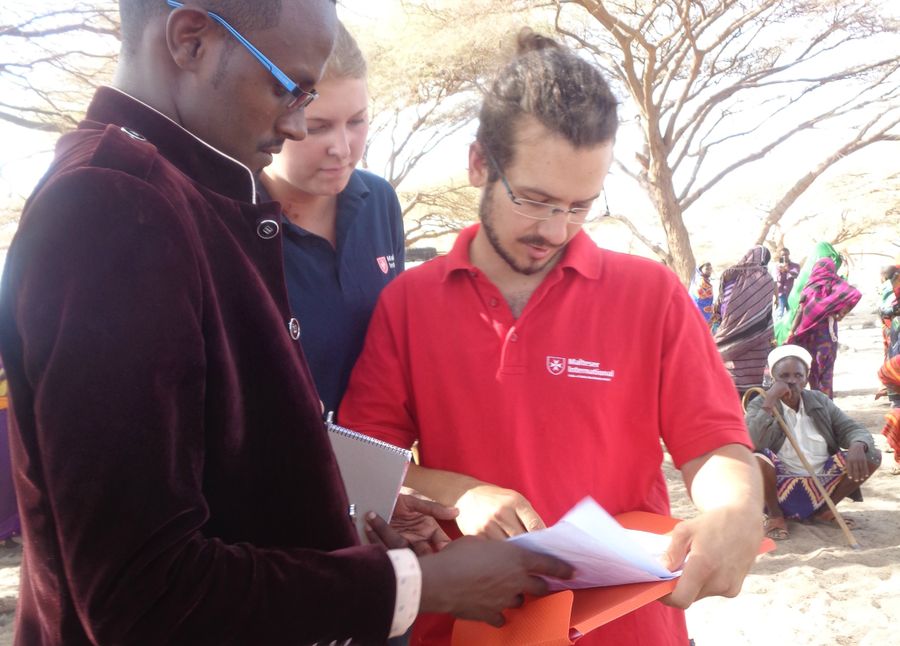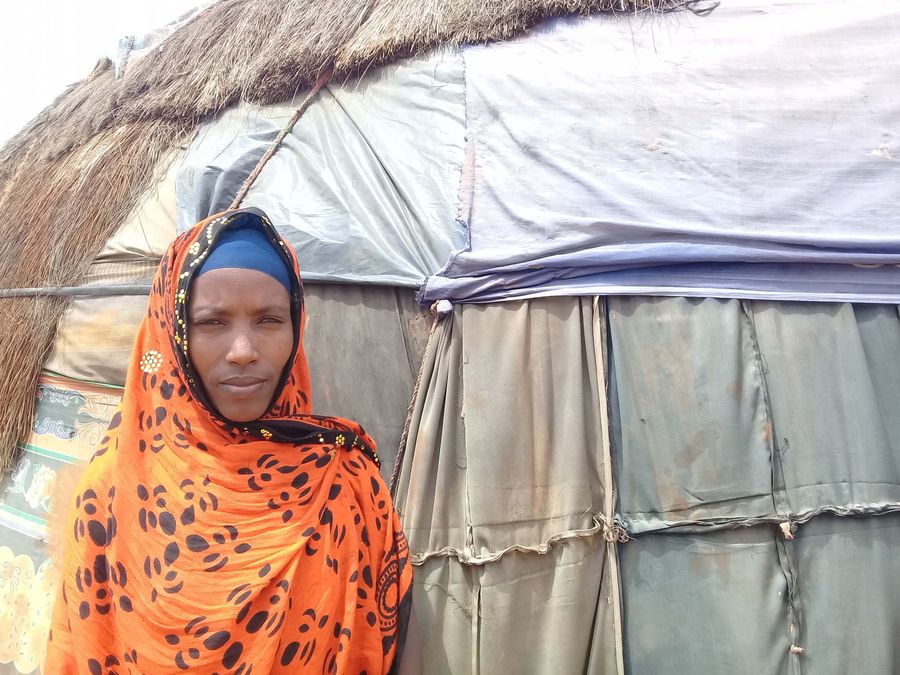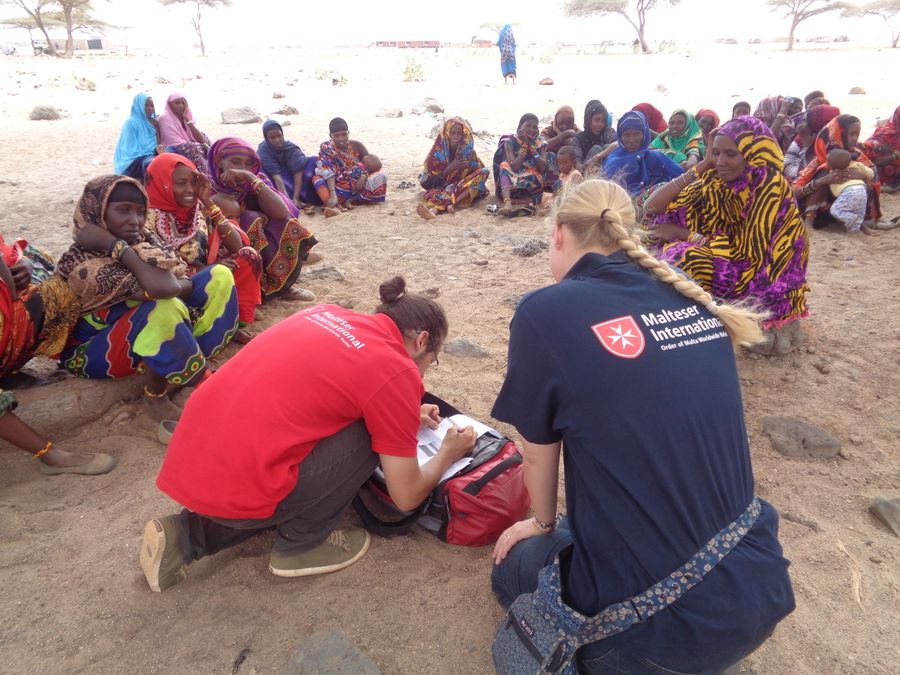Cash-Transfer-Programming in Kenya

Malteser International staff reports from northern Kenya
Forole is a small town in northern Kenya. In Forole and surrounding communities, about 1,200 vulnerable households are in need of urgent assistance. Being a semi-nomadic people, the men always have to take their cattle to other areas, where there is still some green pastures left for their goats, sheep and cows. Meanwhile, the women and children remain in Forole. The area has seen only little rainfall in the past 18 months, and as a result, a large part of the people’s livestock has died.
Michael Fuchs is a project assistant at Malteser International. Since May 2017, he has been supporting the team at the office of our Kenyan partner organization in Marsabit to bring rapid assistance to the people.

"The present situation is quite depressing. Many people are hungry, and do not know how to feed their children in the ongoing drought. To help them as quickly as we can, we hand out monthly cash payments of 3,000 KSh (Kenyan Shillings) to the most vulnerable among them. This is equivalent to about 30 euros, and enables them to afford the most essential foodstuff. I had conversations with many people from the villages. One of them was Sori Mamo from Forole. She is 33 years old, and has two children. Her Husband had left with the cattle in search of food for the animals. Before the drought, the family had 30 goats, now they have only 12. She is also a beneficiary of our cash payments, and wants to buy milk, sugar and oil with the money she received from us.
Sori tells me that water has also become scarce here because the wells have dried up. The mere sight of animal carcasses in the village saddens her.

She was very clear when she said: If the drought continues, we will die.
She has lost every confidence that the rainy season would come in October. Our monthly cash assistance of 30 euros helps the families affected by the drought to buy the bare necessities they need for survival. We will continue to support the people here as best as we can until they are able to stand on their own feet again when the rains arrive."








